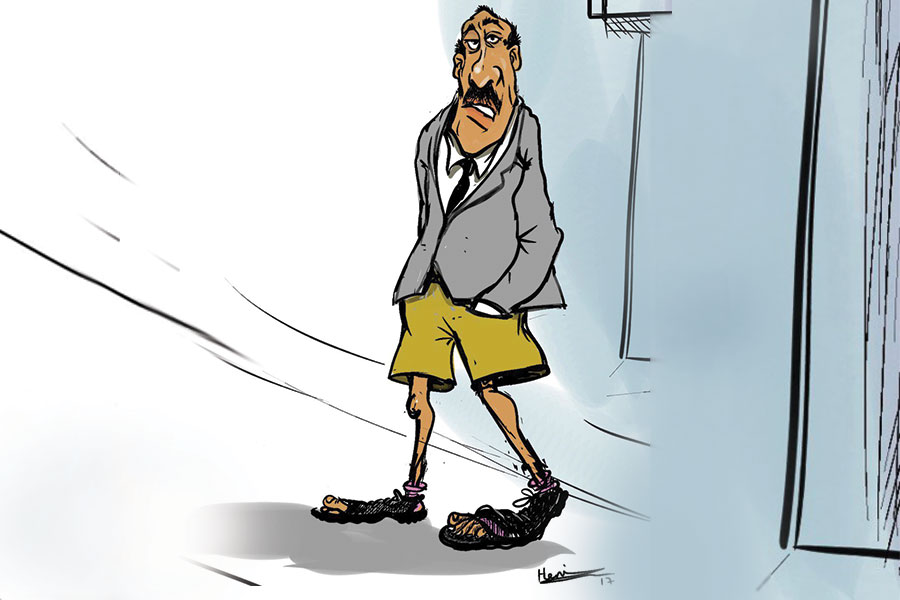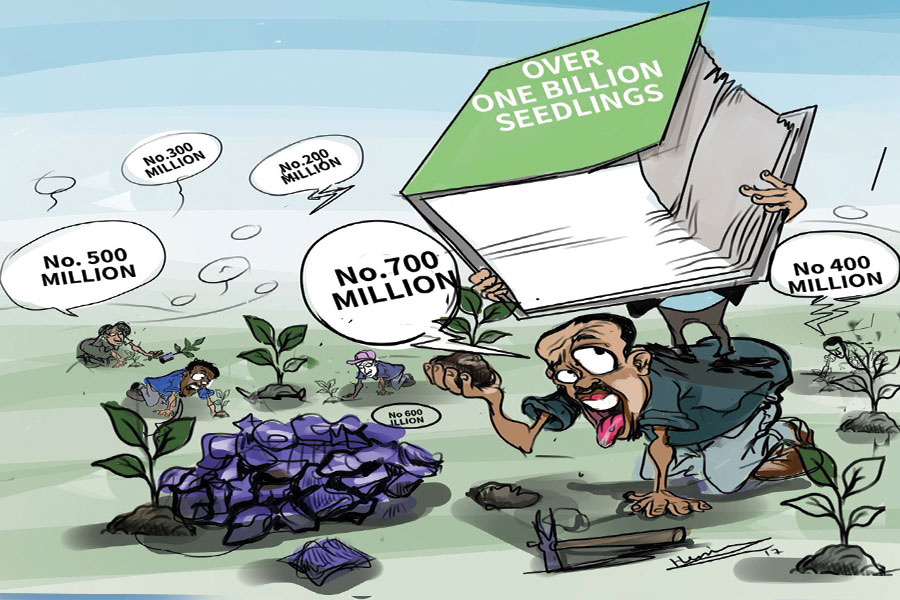
Jun 21 , 2025. By YITBAREK GETACHEW ( FORTUNE STAFF WRITER )
The legal fraternity is facing a moment of uncertainty as sweeping tax reforms have effectively changed the long-standing fixed-rate tax scheme for lawyers, without offering a clearly defined replacement.
The amendment, part of a broader overhaul of the federal tax code, has stripped legal practitioners of their previous categorisation under Category B, leaving nearly 27,000 professionals in a state of fiscal and regulatory limbo.
A disagreement over the nature of legal practice remains at the centre of the controversy.
Officials from the Ministry of Finance defended the reform as a critical step toward modernising the tax system, expanding the tax base, curbing the abuse of tax incentives, and addressing tax evasion. With a 1.93 trillion Br federal budget to finance and a 1.5 trillion Br domestic revenue target for the 2025/26 fiscal year, tax authorities are under pressure to enhance compliance across all sectors, including the legal profession.
However, the Ethiopian Bar Association and a broad spectrum of legal professionals view the reforms as a categorical misstep.
Tewodros Getachew, the Association’s president, warned that the new system conflates legal advocacy with commercial trade, ignoring the profession’s public service obligations, ethical constraints, and irregular income patterns.
“A lawyer can’t advertise or operate freely like a businessperson,” he told Fortune.
Under the previous fixed-rate regime, lawyers paid a set annual amount, often ranging between 10,000 Br and 30,000 Br, depending on firm size and client volume. The new rules scrap that simplicity, shifting lawyers into a system where income should be meticulously documented and taxed accordingly, despite the legal framework’s failure to clarify their classification.
Some attorneys have already faced steep payments when submitting financial statements last year, based on the old system, with dues ranging from 21,000 Br to as much as 200,000 Br.
The move comes despite a two-year study by a joint committee comprising members from the ministries of Finance and Justice, as well as legal professionals, that concluded in December 2024. It advised against subsuming legal practice under the Commercial Code, citing ethical obligations, fee ceilings, and the unpredictable nature of legal case work.
Its findings were ultimately overlooked when Parliament passed the new income tax proclamation.
Lawyers are now required to maintain comprehensive financial records, an obligation they argue ignores the unique structure of their profession. Unlike commercial entities, legal practitioners contend with lengthy, irregular case timelines, client advances, and an obligation to undertake pro bono work. The Ministry of Justice mandates that at least three pro bono cases be handled annually by each attorney, while informal estimates suggest that up to 40pc of professional time may go uncompensated.
Veteran lawyers like Belay Ketema and Daniel Fikadu have voiced apprehension over what they perceive as an erosion of legal autonomy and disregard for professional realities.
“We aren’t opposed to taxation,” said Belay, “but the profession’s specific character must be acknowledged.”
According to Daniel, while labelled as professionals, their classification remains unclear.
"Issuing receipts does not transform a law office into a business under the Commercial Code," he said.
Federal tax officials such as Mulay Weldu, head of tax policy at the Ministry of Finance, maintain that reforms are overdue. He described the fixed-rate regime, which covered 99 sectors, as antiquated, particularly for higher-earning individuals.
“The reform introduces a progressive tax regime more in line with standard accounting practices, aimed at transparency and efficiency,” he told Fortune.
While tax experts like Biruk Nigussie, a former official at the Addis Abeba Revenue Bureau, recognise the importance of fiscal modernisation, they caution against a blanket approach.
“Professional tax policy should reflect the function of the service being taxed,” Biruk told Fortune. “Otherwise, it risks weakening institutions vital to the rule of law.”
PUBLISHED ON
Jun 21,2025 [ VOL
26 , NO
1312]

Photo Gallery | 140002 Views | May 06,2019

My Opinion | 134050 Views | Aug 14,2021

My Opinion | 130613 Views | Aug 21,2021

Photo Gallery | 130263 Views | Apr 26,2019

Aug 23 , 2025
Banks have a new obsession. After decades chasing deposits and, more recently, digita...

Aug 16 , 2025
A decade ago, a case in the United States (US) jolted Wall Street. An ambulance opera...

Aug 9 , 2025
In the 14th Century, the Egyptian scholar Ibn Khaldun drew a neat curve in the sand....

Aug 2 , 2025
At daybreak on Thursday last week, July 31, 2025, hundreds of thousands of Ethiop...